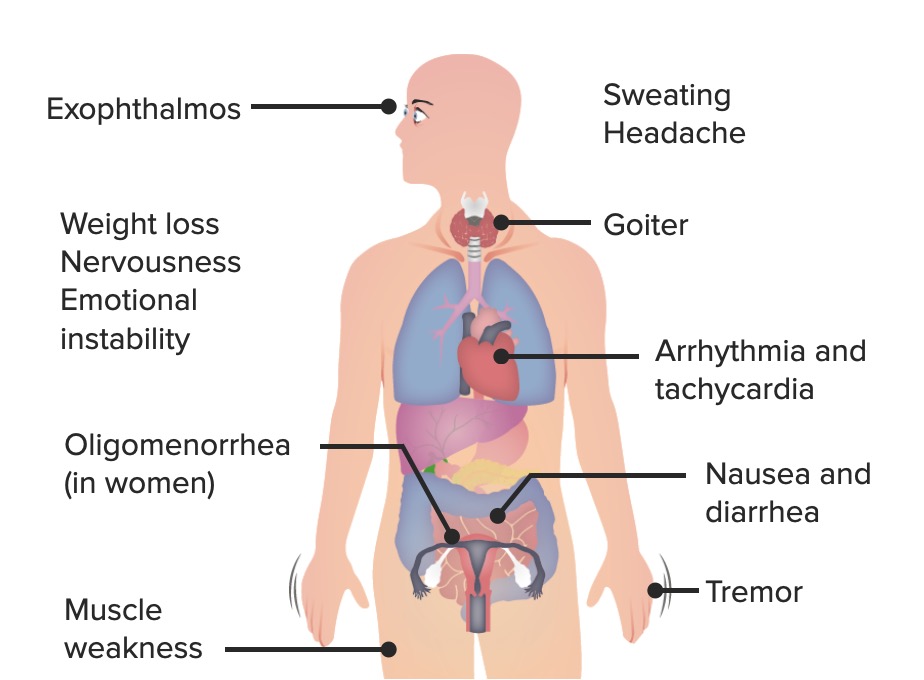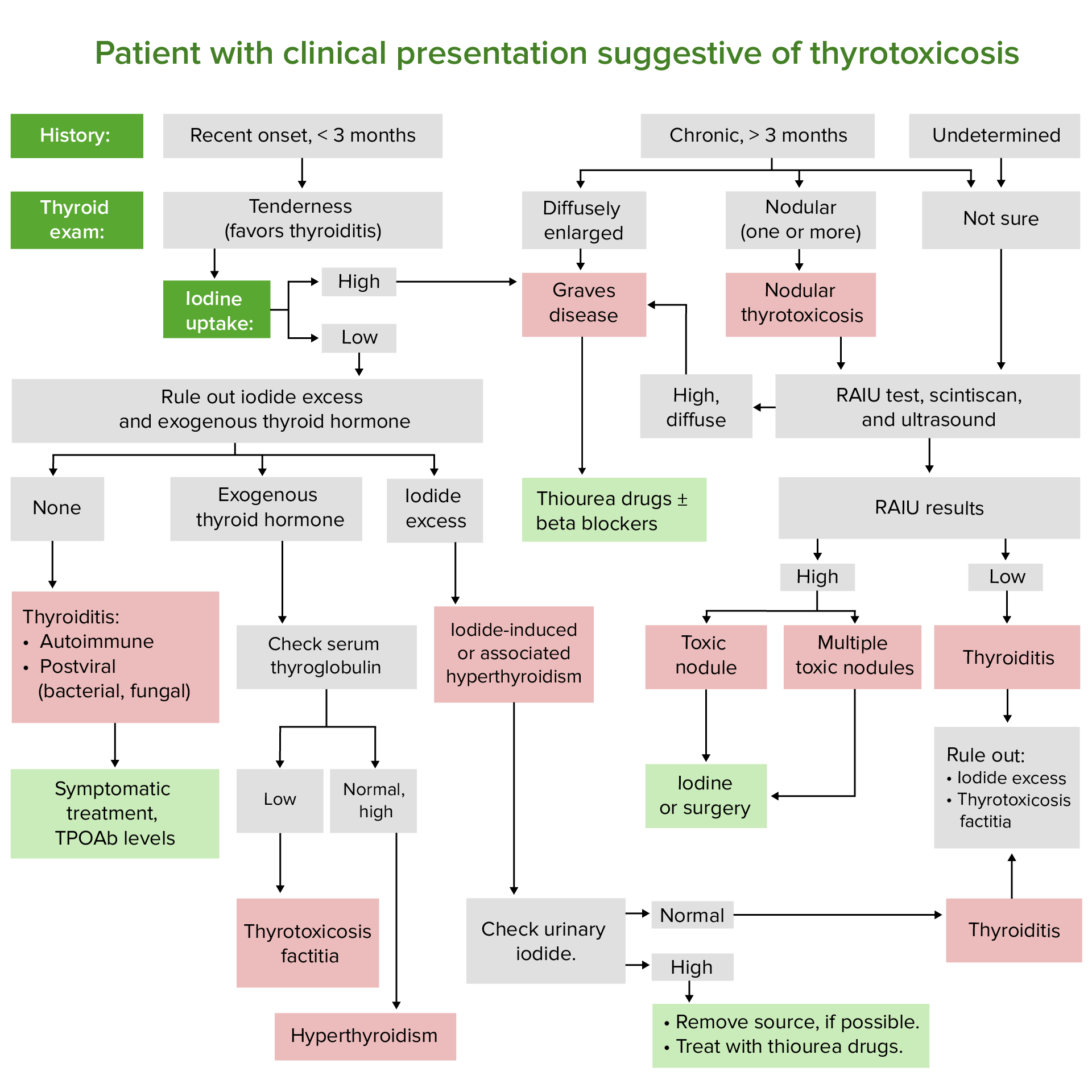Playlist
Show Playlist
Hide Playlist
Hyperthyroidism and Thyrotoxicosis
-
Slides Thyroid Disease.pdf
-
Download Lecture Overview
00:01 The symptoms of hyperthyroidism are numerous. 00:05 They include heat intolerance, palpitations, dyspnea or shortness of breath, tremulousness, menstrual irregularities and increase in the frequency of stool and diarrhea, weight loss and increased appetite. 00:21 In the rest of the body there may be proximal muscle weakness, patients may manifest fatigue and difficulty sleeping. 00:28 They may also have mood disturbances and be very irritable. 00:31 In all the patients, the classic symptoms tend to be absent. 00:35 However, cardiac manifestations are much more prominent. 00:38 Patients may present with abnormal heart rates or atrial fibrillation and may eventually develop heart failure. 00:47 The patterns of abnormal thyroid function tests are as follows: The initial evaluation is always based on the clinical signs and symptoms. 00:56 Check her TSH alone initially to gauge whether the patient is hyper or hypothyroid. 01:02 In the setting of suppressed TSH, then go on and check her T4 and T3 level. 01:08 The typical pattern of hyperthyroidism seen in this case is a low TSH and an elevated T4 and/or elevated T3. 01:18 This is the hallmark of primary hyperthyroidsm. 01:22 A word on terminology. 01:24 Thyroid hormone excess from different sources. 01:28 First of all, endogenous thyroid disorders will cause thyrotoxicosis which is the clinical syndrome of thyroid hormone excess manifesting with the symptoms described above. 01:40 Pituitary tumors can also cause an increase secretion of thyroid stimulating hormone, which again, will lead to a hyperthyroid state. 01:49 This, however, is very very rare. 01:52 You can also have thyrotoxicosis from taking exogenous levothyroxine. 01:57 So patients with a low thyroid who are over medicating themselves with thyroxine may manifest symptoms of thyrotoxicosis. 02:06 Hyperthyroidism is the more specific term to describe thyroid gland overactivity. 02:13 The most common causes though, are Graves' disease and toxic adenomas.
About the Lecture
The lecture Hyperthyroidism and Thyrotoxicosis by Michael Lazarus, MD is from the course Thyroid Disorders. It contains the following chapters:
- Hyperthyroidism Symptoms
- Thyroid Function Test
- Thyrotoxicosis
Included Quiz Questions
Which symptom is not suggestive of hyperthyroidism?
- Weight gain
- Palpitations
- Tremulousness
- Weakness in the hips or shoulders
- Insomnia
What is the most common cause of hyperthyroidism?
- Graves' disease
- Exogenous levothyroxine
- "Cold" adenomas
- TSH-secreting pituitary tumor
- Increased iodine intake
Customer reviews
5,0 of 5 stars
| 5 Stars |
|
1 |
| 4 Stars |
|
0 |
| 3 Stars |
|
0 |
| 2 Stars |
|
0 |
| 1 Star |
|
0 |
clinically relevant information given in an easy to understand format. Thanks





